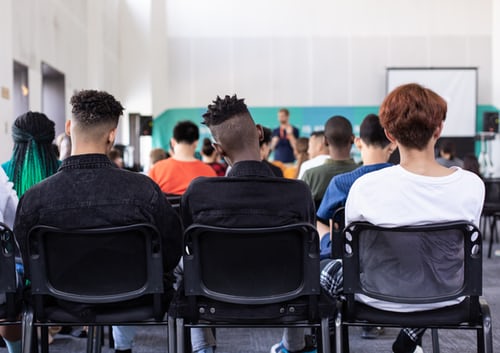
Only Connect
Only Connect
“Only connect the prose and the passion, and both will be exalted, and human love will be seen at its highest. Live in fragments no longer.”
― E. M. Forster, Howards End
Increasingly we are experiencing the world in bitesize chunks. Social media allows us access to many things but often in very small doses. We might be able to find the answer to anything and everything but we are less and less likely to place those answers within any meaningful context. We ‘live in fragments’. Our horizons are not being broadened but narrowed because we often ‘only connect’ with like minded people. Within our safe echo chambers we debate, question and challenge less. And we blame more.
A Time of Only Disconnect?
The same might be said of education – in both the teaching and the learning. The curriculum has been segmented into distinct subjects and each subject into distinct chunks of content or distinct skills. Mark schemes are in grid form, suggesting that each element of assessment is separate to the next. You can be awarded marks for x even if you can’t do y. Inevitably, and perfectly understandably given the cultural value placed on examination results, teachers teach to the examinations and to the mark schemes and this only serves to compound the fragmentation of learning. If students are taught disconnected content then their domain of knowledge will be disconnected; the learning will be superficial. The students might be able to pass an exam but they will not retain the knowledge in the longer term. In one ear for a bit but out the other for much longer.
Retain Learning
Given this situation and in order to make knowledge stick, it is essential that students (and their teachers) work to make connections. It’s up to you to find the relationships between seemingly disconnected bits of information. This is often about finding links: links between a current topic or text and one you have studied previously; links within a topic or text; making predictions based on prior knowledge, linking the work within the learning place to the real world. If you keep your focus on similarity and difference you’ll find that you are making connections all the time and retrieving and revisiting prior learning and the whole teaching and learning process will begin to feel more coherent and cohesive.
The highly prized skills of analysis and evaluation are really just about making meaningful connections but to make those connections does take time and effort. So, find the time to think about links and ‘live in fragments no longer’.